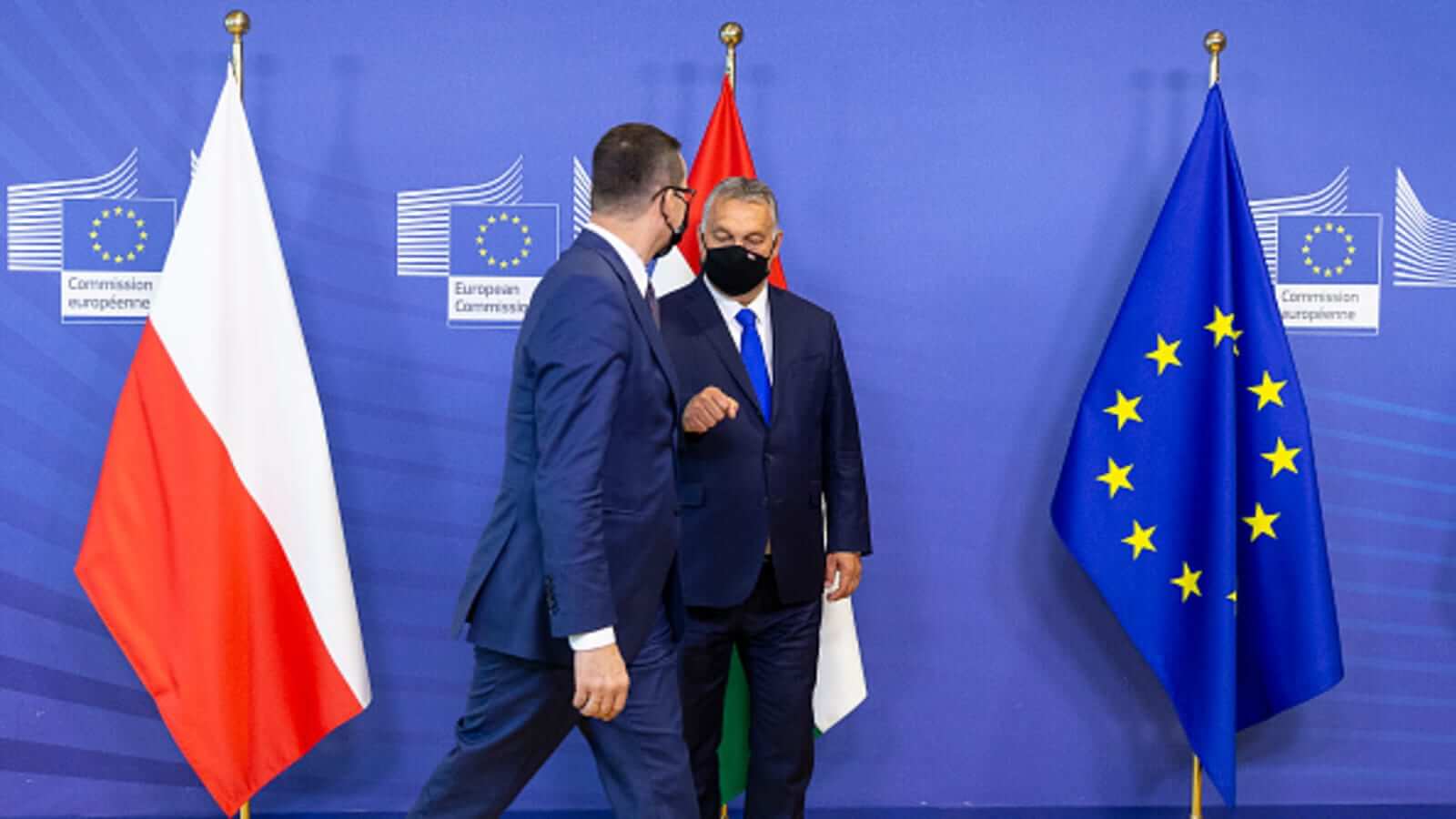On Monday, Hungary and Poland vetoed a proposal presented before the members of the European Union to spearhead the 2021-2021 €1.8 trillion budget to kickstart the bloc’s post-pandemic recovery. While the broader deal was agreed to by all the members of the bloc in July, the details were still being negotiated. Moreover, the plan requires unanimous approval by all 27 members of the bloc.
Naturally, the decision has faced significant criticism from the bloc’s political leaders. For instance, Rasmus Andresen, a Member of the European Parliament from the Green Party, said that Hungary and Poland’s decision was an attempt to “take Europe and Covid hostage for [their] failed policies.” Further, Michael Roth, Germany’s European Affairs Minister, also criticised the decision and urged members of the EU to “live up to their responsibility.” He said, “It is not the time for vetoes but for acting swiftly and in the spirit of solidarity.” He further warned both Hungary and Poland of the impact of this decision on its people, who are also facing a difficult situation due to the economic impact of the pandemic
However, European leaders still remain, both, optimistic and dedicated to finalising the budget and the recovery plan. For instance, Clement Beaune, France’s European Affairs minister, said, “Hungary and Poland blocking the European budget doesn’t put into question our determination on the recovery and the rule of law … A solution will be found in the coming weeks, France is fully involved to find one.” This optimism was also echoed by German Foreign Minister Heiko Maas, who said, “There is so much money involved which so many countries in the European Union need and are waiting for, that we not only need a solution but we need it quickly … I am sure that we will be able to do that.”
Hungary and Poland’s move comes in light of the bloc’s recent decision to adopt a mechanism that requires member states to adhere to the European standard of democratic principles to secure access to its long-term budget. While announcing his decision to block the proposal, Zoltan Kovas, the spokesperson for Hungary’s Prime Minister Viktor Orbán, said, “Hungary has vetoed the budget … We cannot support the plan in its present form to tie rule-of-law criteria to budge decisions.” Previously, Orbán criticised the proposal as he believed it paved the way for “political abuses and [violated] the requirement of legal certainty.”
The proposal to make access to the long-term budget contingent on adherence to the rule of law was said to specifically address the widespread concerns amidst several European leaders regarding decisions taken by the right-wing populist governments in Poland and Hungary over the past few years. For instance, Orbán has been at odds with EU institutions since taking power in 2010, challenging them over allegations against his government’s economic policies, corruption, and his hard-line immigration stance. After the Council of Europe first sounded the alarm over Hungary’s new law on March 24, which granted Orbán powers to ‘rule by decree’ during the coronavirus pandemic, he told the EU that he does not hold unlimited powers and that the parliament could withdraw the law at any time. However, given that his Fidesz party holds a two-thirds majority, such an outcome remains unlikely.
Further, Poland, too, attracted criticism from the bloc after withdrawing the immunity of Beata Morawiec, a judge who is a known critic of Justice Minister Zbigniew Ziobro. Consequently, expressing concern about the implication of this decision on the independence of the judiciary in Poland, the Court of Justice of the EU ruled that all cases against Morawiec should be suspended until the court rules on its legality. Moreover, the country has also been witnessing widespread protests against a recent proposal to impose a near-total ban on abortion.
EU Recovery Package Blocked by Hungary and Poland
This move comes in light of the bloc’s recent decision to require member states to adhere to the European standard of democratic principles to secure access to its long-term budget.
November 18, 2020

Polish Prime Minister Mateusz Morawiecki and the Hungarian Prime Minister Viktor Mihaly Orban during the Visegrad Group meeting in September 2020. SOURCE: GETTY IMAGES
